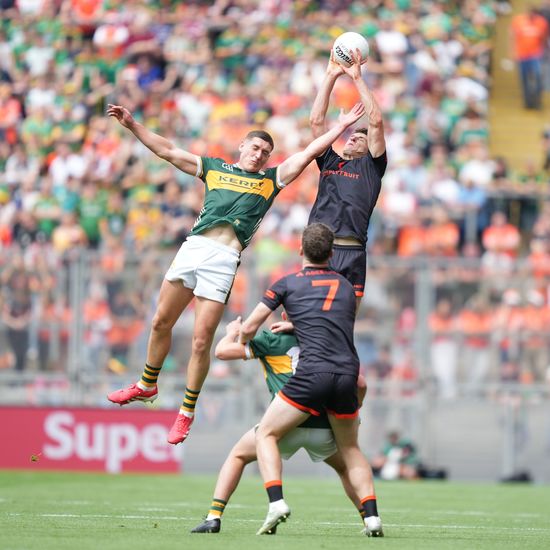Tiarnan Ó Duinnchinn.
Traditional Music / By Daniel Neely
In the player this week is uilleann piper Tiarnan Ó Duinnchinn’s new album “Reggish Paddy.” A play on the tune title “Rakish Paddy,” the title gives listeners an indication that this is indeed a piping record. However, the puckish title says little about the great quality this CD offers. If you love the pipes – and even if you don’t – you’re going to want to better know Ó Duinnchinn and what his new album offers. It’s a cracker.
A native of Monaghan, Ó Duinnchinn is a product of the Armagh Pipers Club. When his cycle as a student ended there, the young musician could not only boast of having won four All-Ireland and two Oireachtas titles, but of having the sort of solid foundation upon which a promising professional career could be built. And it seems opportunity came fast and quick for Ó Duinnchinn, as he’s been performing widely since the 1990s with musicians including Tommy Peoples and Niall & Cillian Vallely. In that time he’s also made several records with the likes of Clannad’s Moya Brennan (“Whisper to the Wild Water” & “Two Horizons”), the singer Stéphanie Makem (“Lough Erne Shore”), harpist Laoise Kelly (“Ar Lorg na Laochra”), and the band Na Dorsa (“The Wild Music of the Gael”), in which he was a member. It’s an extremely solid track record by any standard.
This album, Ó Duinnchinn’s first true solo outing, builds on that success. The album shows interesting variety from beginning to end and is outstanding throughout. In addition to the jigs and reels, the CD’s eleven tracks include strathspeys, song airs, polkas, a hornpipe, and even a tarantella thrown in for good measure.
The CD opens with a bang. Ó Duinnchinn does an excellent job on the first track to recast, “Reggish Paddy” / “Bunch Of Regulator Keys,” a couple of well-work session favorites, in new light using careful and inventive use of harmony. The result is something that’s simultaneously familiar and different. The same might be said for “T’was When The Sea Was Roaring / Iron Man / Brenda Stubbert’s,” a trio of tunes composed by baroque composer George Frideric Handel (jig), Tommy Peoples (strathspey), and Jerry Holland (reel), respectively. Ó Duinnchinn has married these three seemingly incompatible tunes beautifully and the result is utterly compelling. I am particularly fond of the polkas, “Return Of Spring / Mountain Pathway.” First recorded by James Morrison in 1926, the pair lack the typical “Sliabh Luachara” swing many expect and as you might expect, Ó Duinnchinn does an excellent job making them feel lively and danceable. Another favorite track (a song air and two polkas) is “Tá Dhá Ghabhairín Bhuí Agam / O’Sullivan’s / O’Callaghan’s.” There, Ó Duinnchinn’s playing is lovely and he complements it with fantastic regulator work.
There are also a couple of tracks that include some quite unusual tonalities which give the album a little extra interest. “Tarantella Alla Carpinese / Miss Monaghan’s / Garrett Barry’s,” opens slowly in a brooding minor key, until the track expands into a more familiar sounding reel. Then there’s “Fairy Queen / Dance For The Haymakers,” which features two tunes by English baroque composer Henry Purcell. The tune opens with a simple statement of the melody. On second pass Ó Duinnchinn adds some sophisticated regulator work. This one’s really quite something and one of the album’s most memorable tracks.
Ó Duinnchinn is a brilliant player who has strong control of his chanter and superior skills on the regulators and he’s brought these to bear on “Reggish Paddy,” which is a lovely album that should attract the ears of all uilleann pipers. But I think this album offers more than just a simple clinic on the nuances of uilleann piping. What’s really interesting here is how effectively Ó Duinnchinn has arranged the individual tracks and sequenced the album as a whole to evoke a sense of variety, which a tough thing when it comes to piping records. It hints at the depth of Ó Duinnchinn’s musical imagination, anyway, but I think it’s what gives the album a broader appeal. Indeed, while there doesn’t appear to be a conspicuous narrative arc to this album, I feel even a casual listener can hear this album and come away with a compelling sense that s/he’s been on an enjoyable journey. It’s something I think few trad albums do so well. Lots of good stuff to check out here, definitely have a listen! To learn more, visit www.tiarnan.ie.









